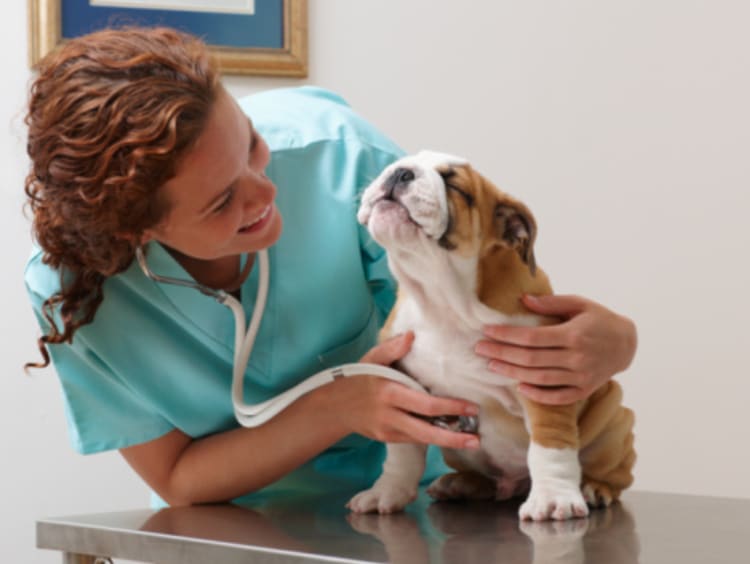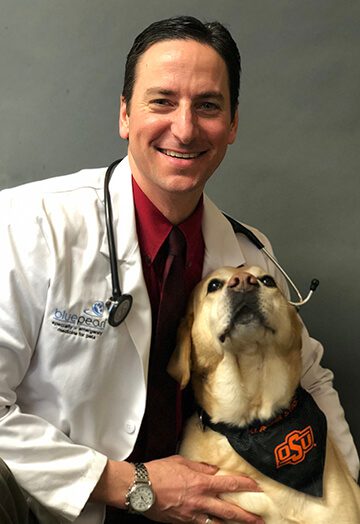Inoculation Standards From Your Trusted Veterinarian
Inoculation guidelines supplied by your relied on vet play a vital function in safeguarding your pet dog's health and wellness and health. Furthermore, addressing typical misunderstandings bordering vaccines can additionally enhance family pet owners' confidence in these preventative steps.

Importance of Vaccinations
Inoculations play an essential function in securing family pets versus a variety of preventable diseases. By stimulating the body immune system to identify and deal with details virus, vaccinations considerably decrease the incidence of infectious conditions that can influence a pet's health and durability. Not just do vaccinations shield individual animals, yet they additionally add to herd resistance, consequently reducing the overall frequency of diseases in the animal population.
Timely vaccinations help to reduce the spread of illness such as rabies, parvovirus, and distemper, which can have severe effects for both pet dogs and people. Vaccinations are usually a demand for boarding facilities, grooming solutions, and pet parks, making them necessary for those that want to mingle their animals.

Core Injections for Pets
While the specific vaccination needs of pet dogs can differ based upon specific factors, core vaccines are widely recommended to secure versus one of the most usual and major illness (Pet Health Checkup). Core injections are those deemed vital for all pet dogs, no matter their lifestyle or geographic place, as they safeguard versus potentially deadly and highly contagious ailments
For pet dogs, the core injections include those for canine distemper, parvovirus, adenovirus (liver disease), and rabies. Adenovirus can result in liver condition, while rabies is a zoonotic illness that presents a threat to both human beings and animals.
In cats, core injections encompass feline panleukopenia, feline calicivirus, feline herpesvirus (rhinotracheitis), and rabies. Feline panleukopenia is a very contagious viral condition that affects the body immune system and intestines. Calicivirus and herpesvirus are significant factors to upper breathing infections in felines, while rabies continues to be a critical problem for public health and wellness.
Talk to your veterinarian to guarantee your pets obtain their core vaccinations on timetable.
Non-Core Vaccines Explained
Non-core vaccines are customized to resolve details risks related to a pet's lifestyle, direct exposure, and environment to specific illness. Unlike core injections, which are generally suggested for all family pets, non-core vaccines are thought about based on individual conditions. These vaccinations are specifically vital for pets that may experience special virus as a result of their geographical location, travel practices, or activities.
Examples of non-core vaccines include those for Bordetella bronchiseptica, which is linked to kennel coughing, and Lyme condition, brought on by ticks. Family pets that often connect with various other pets, such as those in boarding centers, pet dog parks, or grooming environments, may take advantage of Bordetella vaccination. If you live in a location where Lyme disease is prevalent, immunizing against this disease can be a sensible choice for outdoor-loving pet dogs.
Other non-core vaccines may consist of those for leptospirosis, canine flu, and feline leukemia, relying on the particular threat elements existing. It is vital to have an extensive conversation with your veterinarian regarding your pet's way of life and the possible need for these injections, ensuring a tailored inoculation technique that ideal safeguards your fuzzy friend.
Vaccination Arrange Review

As pet dogs develop, it is essential to comply with the recommended booster vaccinations. Veterinarian Enterprise. For adult pets, core vaccines are typically given each to 3 years, depending upon the specific vaccine useful site and local guidelines. Non-core injections might be advised based on way of life factors and regional condition frequency, necessitating a tailored technique
Normal vet check-ups are vital for upgrading inoculation timetables. Your veterinarian can supply advice on one of the most suitable immunizations for your pet dog, considering age, health and wellness status, and ecological dangers. By staying aggressive and educated, animal proprietors can ensure their furry friends obtain prompt and efficient inoculations, consequently guarding their health and wellness and health throughout their lives.
Common Myths Concerning Injections
Misunderstandings about animal vaccinations can result in confusion and reluctance among pet owners concerning the booster shot procedure. One common myth is that vaccines are unnecessary for indoor pets. While it holds true that indoor animals deal with reduced dangers, they are not completely immune to conditions, as pathogens can be presented via various methods, including human clothes and other family pets.
One more false impression is that vaccinations can trigger the illness they aim to stop. Actually, a lot of vaccinations have suspended or attenuated virus, which can not cause disease in healthy animals. Some family pet owners likewise believe that their pet dogs must not be vaccinated if they are already healthy and balanced; however, inoculations are a positive measure that assists prevent the start of ailment.
In addition, lots of pet dog proprietors are afraid that injections will result in lasting health difficulties. While side results can take place, they are momentary and commonly mild. The benefits of inoculation-- protecting animals from possibly life-threatening illness-- much surpass the risks. Comprehending these usual misconceptions is important for liable pet ownership and making certain the health and wellness of your hairy companions. Always consult your veterinarian for exact information customized to your pet's details requirements.
Conclusion
In summary, adherence to inoculation standards is crucial for ensuring the health and wellness and durability of family pets. Core vaccinations give important security against severe conditions, while non-core vaccinations address particular risks based on specific lifestyles. Developing a comprehensive vaccination routine, combined with visit here regular veterinary examinations, promotes optimal health management. Eliminating typical myths surrounding inoculations better enhances the value of notified decision-making in pet treatment. Eventually, a proactive strategy to inoculations is essential for keeping family pet health.
Not just do vaccinations shield private animals, however they also contribute to herd resistance, thus reducing the general frequency of illness in the pet dog populace.
False impressions regarding pet vaccinations can lead to complication and unwillingness among animal proprietors regarding the immunization process. While it's real that indoor pet dogs face reduced dangers, they are not entirely immune to illness, as virus can be introduced via various means, including human apparel and other pet dogs.
Some pet proprietors additionally believe that their family pets need to not be immunized if they are currently healthy; nevertheless, inoculations are a proactive measure that aids prevent the onset of health problem.
The advantages of inoculation-- safeguarding family pets from possibly dangerous conditions-- far surpass the dangers.